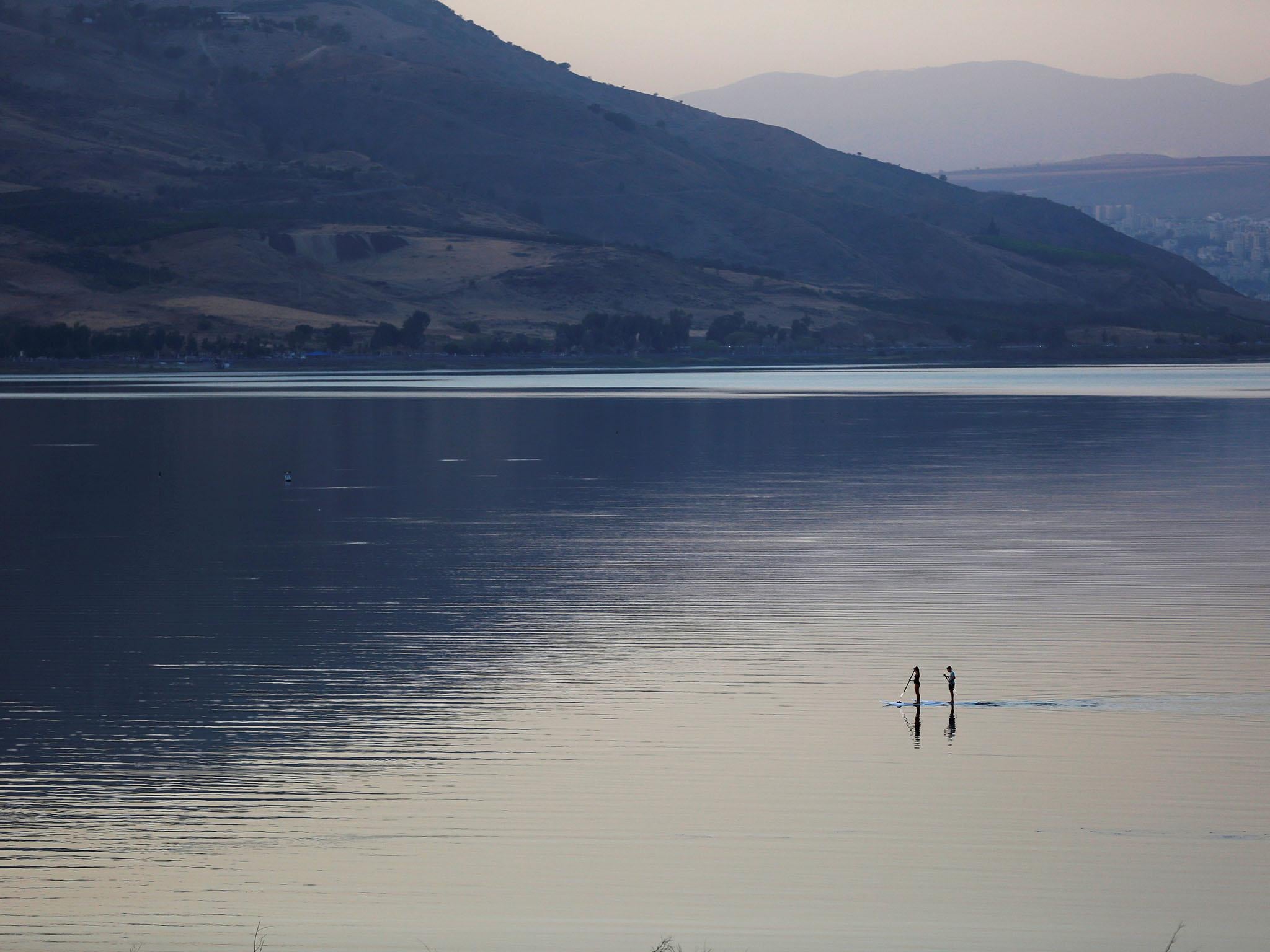The Sea of Galilee: receding waters of biblical lake
A sharp drop in annual rainfall in the northern Galilee region over the past three years has caused the lake's waters to recede

Your support helps us to tell the story
From reproductive rights to climate change to Big Tech, The Independent is on the ground when the story is developing. Whether it's investigating the financials of Elon Musk's pro-Trump PAC or producing our latest documentary, 'The A Word', which shines a light on the American women fighting for reproductive rights, we know how important it is to parse out the facts from the messaging.
At such a critical moment in US history, we need reporters on the ground. Your donation allows us to keep sending journalists to speak to both sides of the story.
The Independent is trusted by Americans across the entire political spectrum. And unlike many other quality news outlets, we choose not to lock Americans out of our reporting and analysis with paywalls. We believe quality journalism should be available to everyone, paid for by those who can afford it.
Your support makes all the difference.On the shimmering Sea of Galilee, where the Christian gospels say Jesus walked on water, 150 Nigerian pilgrims aboard a river boat sing and dance to an African beat. Their pastor, Reverend Samuel Tunde Ogunmodede, said he and his congregation had come to the biblical lake to see what they had, until now, only read about in the scriptures. "We came here to seek the face of God, pray to God as he did in the time of the disciples. We will pray here so that he will do the same in our lives," he said on board the boat. About one million tourists from abroad visit the Sea of Galilee, also known as Lake Tiberias or Kinneret, each year, according to the Israeli tourism ministry.
Stretching about 65 sq miles (170 square km) from the foot of the Israeli-occupied Golan Heights, the Sea of Galilee (actually a fresh-water lake) spills into the Jordan River, where Jesus is believed to have been baptised. On a crisp winter day, worshippers from Singapore, Nigeria and Germany perform their own baptism ceremonies in the waters. The gospels tell of Jesus walking on the lake to comfort and save disciples as their ship was foundering in a storm and miraculously producing huge catches of fish for their nets. But the Sea of Galilee may need a few more miracles these days. A sharp drop in annual rainfall in the northern Galilee region over the past three years has caused the lake's waters to recede, according to Israel's Water Authority. It is now at its lowest in five years.
Receding water levels means higher salt levels, which harm the eco-balance and could render the water unusable. In an effort to control the damage, only a 10th of the annual average quantity of water supply has been drawn from the lake this year, a water authority spokesman said. In a complex operation, salt water springs are found and their flow is diverted out of the lake. To better keep the eco-balance and maintain water quality, the lake is stocked with millions of fish every year. The Sea of Galilee has, in the past, provided up to a third of Israel's water. Israel now relies on the more expensive methods of desalination and recycling for more than half its water supply.
Reuters
Join our commenting forum
Join thought-provoking conversations, follow other Independent readers and see their replies
Comments